In the MetoyerLab, we apply the human-centered design thinking process to address problems at the intersection of people and machines with a particular emphasis on data-centric applications. Each stage of this process presents opportunities for contributions to the research community in varioius forms including behavior modeling and characterization, domain characterization, algorithm implementation, and design guidelines. Below are some examples of projects that we are currently engaged in.
Diagram courtesty of the Nielsen-Norman Group
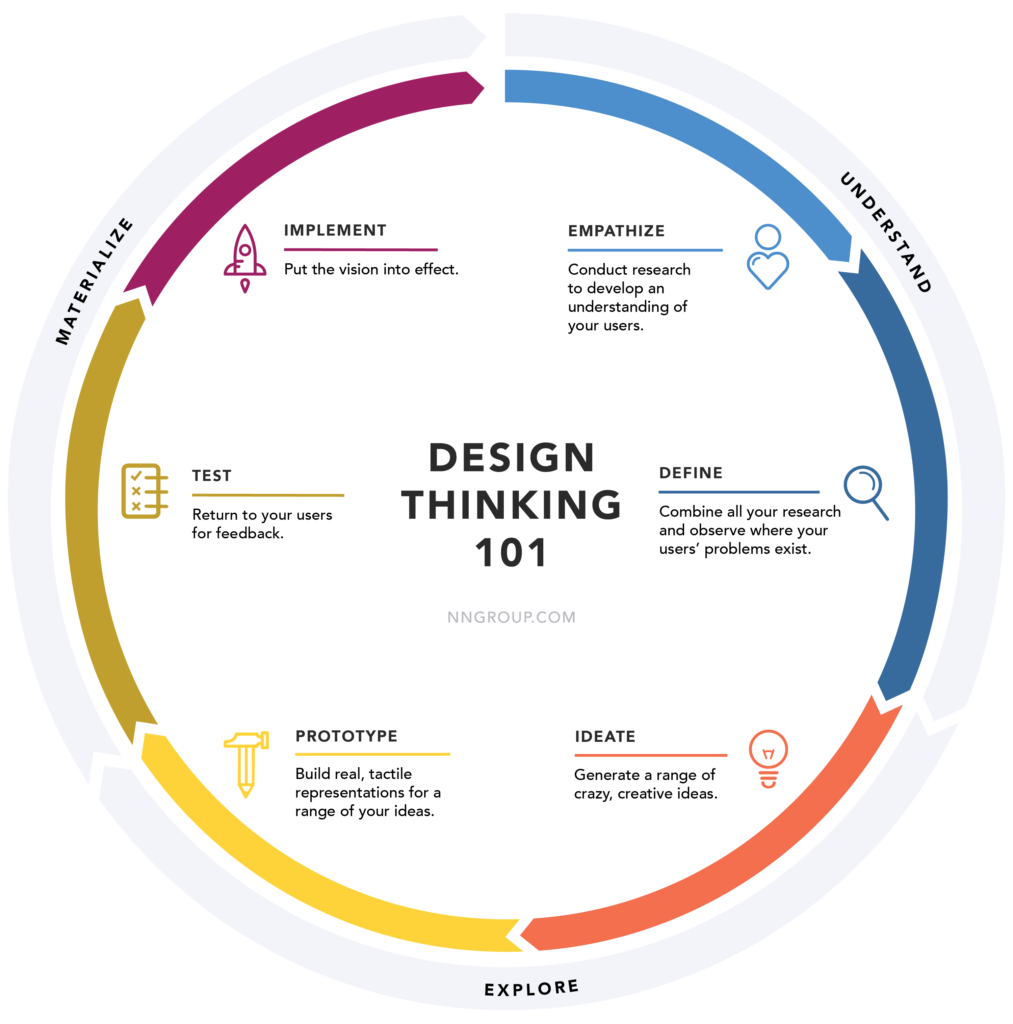
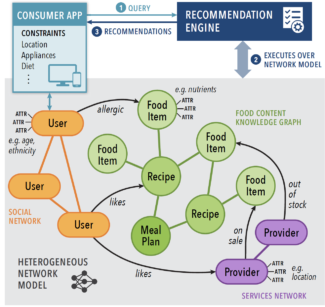
Food Information Networks
This project is funded by the National Institute for Food and Agriculture and focuses on addressing food insecurity at both the information and physical access levels. Our team of designers, computer scientists, and social scientists from multiple institutions are engaging in a multiple phase project to thoroughly understand the barriers to access to healthy food, develop technological supports, and deploy and study our intervention in two cities – South Bend, Indiana, and Detroit, Michigan.
The project PIs are Ron Metoyer, Nitesh Chawla, Ann-Marie Conrado, and Danielle Wood of the University of Notre Dame, and Tawanna Dillahunt of the University of Michigan. Community partners include Beckie Lies (Purdue Extension), Gillian Shaw and Michelle Sawwan (enFocus), Sue Taylor (Beacon Community Impact), and Robin Vida (St. Joseph County Health Department).
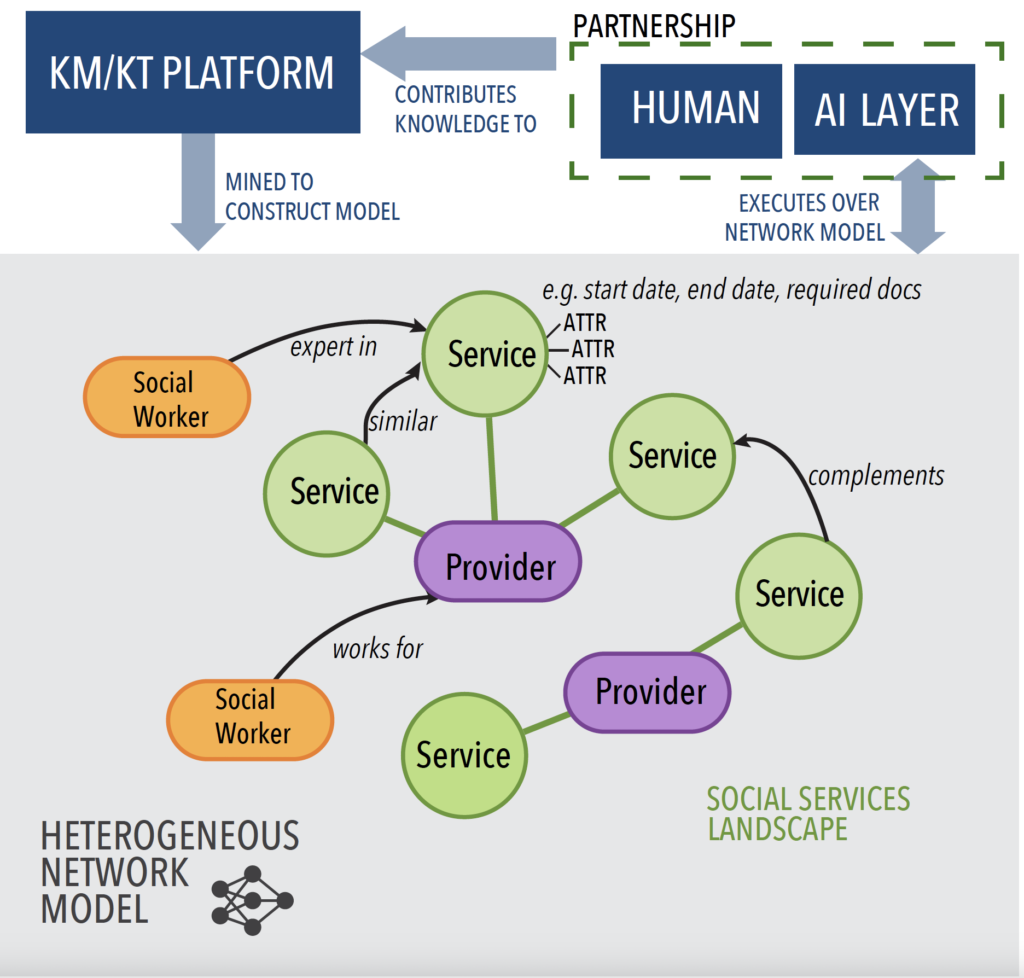
Care Network
As a growing city with a poverty rate twice the national average, South Bend residents are in need of easy ways to find and access social services in the city. A particularly vulnerable population is those who have fulfilled their criminal sentences and find themselves in need of assistance for reintegration back into society. This is a complicated and resource-starved process that requires expert knowledge and familiarity with local services. However, the current system is tedious and confusing, and its usage requires trained “navigators” to find resources for clients. To alleviate these issues this project is creating tools for semantic search and personalized recommendation of social services while integrating expert’s qualitative data. We are also carefully examining the knowledge transfer and knowledge management practices of these organizations to better understand how technology can be leveraged to support this important work.
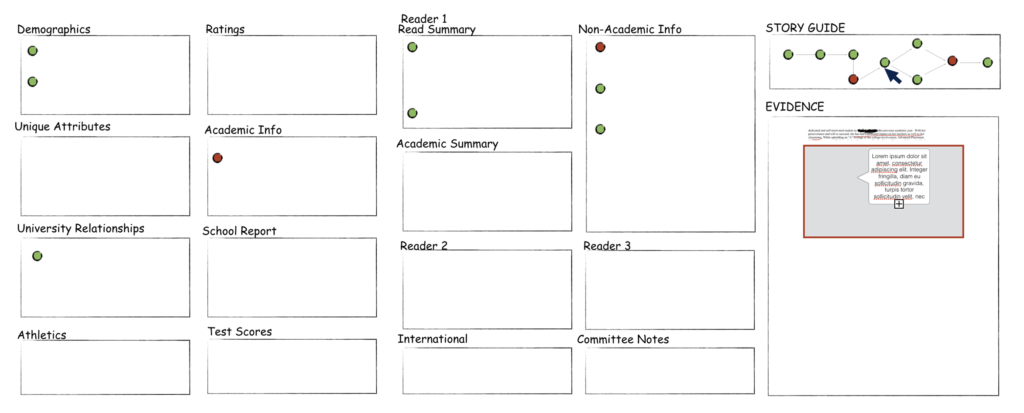
Visual Bias Mitigation
Review processes are complex and often subjective decision-making processes in which individual reviewers must read and rate submissions such as an academic paper, a grant proposal, or a college application, along many relevant dimensions. The process also includes committee review where individual reviewers meet to discuss the merits of a particular submission in order to recommend an accept or reject decision. We aim to reduce the impact of cognitive biases in holistic review processes by utilizing visualization and human-centered design methods.
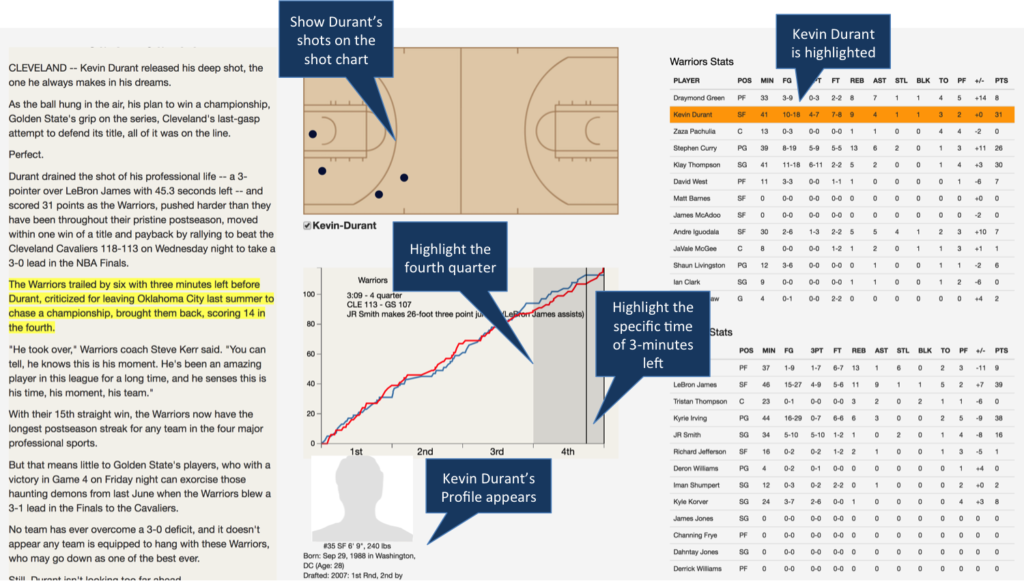
Coupling Text to Visualization
Modern web technologies are enabling authors to create various forms of text visualization integration for storytelling. This integration may shape the stories’ flow and thereby affect the reading experience. In this project, we seek to understand two text visualization integration forms: (i) different text and visualization spatial arrangements (layout), namely, vertical and slideshow; and (ii) interactive linking of text and visualization (linking). Here, linking refers to a bidirectional interaction mode that explicitly highlights the explanatory visualization element when selecting narrative text and vice versa.
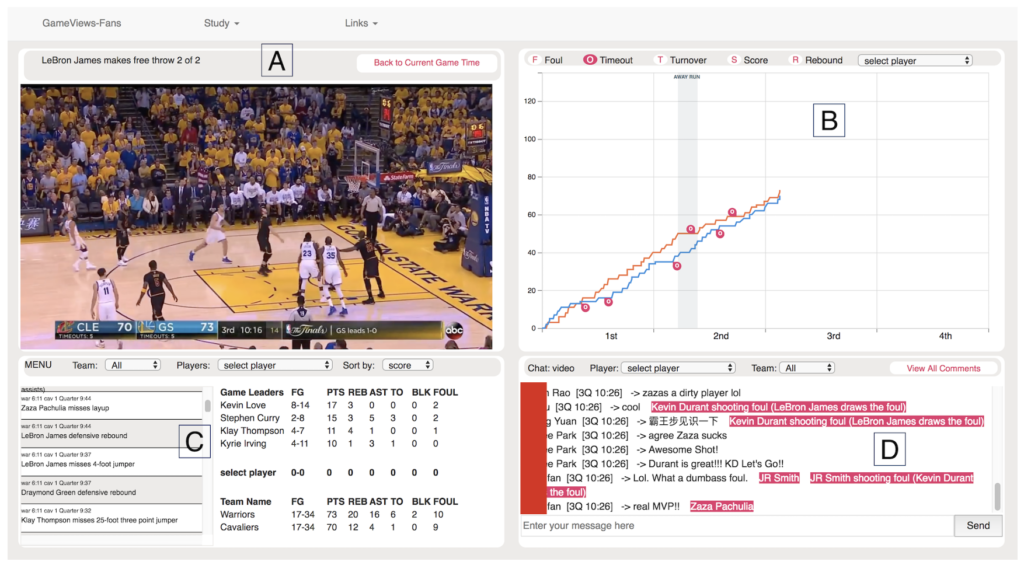
Sports Visual Storytelling
Various stakeholders in the sports domain rely on the analysis and presentation of sports data to derive insights. In particular, sportswriters construct game stories using statistical information; fans share their viewpoints based on real-time stats while watching the game. In this project, we explore how these stakeholders construct data-driven sports stories. We implemented two exploratory prototypes: GameViews-Writers for sportswriters to quickly extract key game information and GameViews-Fans to support a real-time data-driven game-viewing experience for fans.
